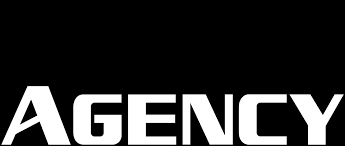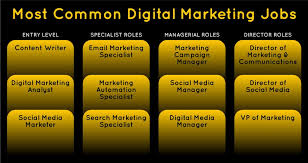Digital Marketing Consultants: Unlocking the Power of Online Success
In today’s fast-paced digital world, businesses are constantly seeking innovative ways to reach their target audience and stay ahead of the competition. This is where digital marketing consultants come into play. These professionals possess the expertise and knowledge to navigate the ever-changing landscape of online marketing, helping businesses unlock the power of online success.
Digital marketing consultants are strategic partners who work closely with companies to develop comprehensive digital marketing strategies tailored to their unique goals and objectives. They understand that a one-size-fits-all approach simply won’t cut it in today’s dynamic digital environment. Instead, they take the time to understand a company’s industry, target audience, and competitive landscape, allowing them to craft effective strategies that drive results.
One of the key benefits of working with a digital marketing consultant is their ability to leverage various online channels and tools to create a cohesive and impactful brand presence. From search engine optimization (SEO) and pay-per-click (PPC) advertising to social media marketing and content creation, these experts have a deep understanding of each platform’s nuances and how they can be utilized to maximise brand visibility.
Moreover, digital marketing consultants keep up with the latest industry trends and best practices. They continuously monitor changes in algorithms, emerging technologies, and shifting consumer behaviours to ensure that their clients’ strategies remain relevant and effective. By staying ahead of the curve, these consultants help businesses adapt swiftly in an ever-evolving digital landscape.
Another advantage of working with digital marketing consultants is their ability to provide valuable insights through data analysis. They track key performance indicators (KPIs), measure campaign success, and provide detailed reports that allow businesses to make informed decisions based on real-time data. This data-driven approach ensures that resources are allocated effectively while optimizing return on investment (ROI).
Furthermore, hiring a digital marketing consultant can save businesses both time and money. Instead of navigating the complexities of online advertising alone, companies can rely on the expertise of these professionals to streamline their marketing efforts. By outsourcing digital marketing tasks, businesses can focus on their core competencies while leaving the intricacies of online marketing to the experts.
Collaboration is at the heart of successful partnerships with digital marketing consultants. These consultants work closely with businesses, acting as an extension of their team. They provide guidance, offer recommendations, and work collaboratively to achieve shared goals. This collaborative approach fosters a strong relationship built on trust, transparency, and open communication.
In conclusion, in an increasingly digital world, businesses need a strong online presence to thrive and succeed. Digital marketing consultants play a vital role in helping companies navigate the complexities of online marketing. With their strategic expertise and data-driven approach, they unlock the power of online success by creating tailored strategies that drive brand visibility, engage target audiences, and deliver measurable results. So if you’re looking to take your business to new heights in the digital realm, consider partnering with a trusted digital marketing consultant who can guide you towards achieving your goals.
Commonly Asked Questions about Digital Marketing Consultants in the UK
- What is the role of a digital marketing consultant?
- How can a digital marketing consultant benefit my business?
- Will hiring a digital marketing consultant be cost-effective for my business?
- How do digital marketing consultants stay up-to-date with industry trends?
- Can a digital marketing consultant help improve my search engine rankings?
- What should I look for when hiring a digital marketing consultant?
What is the role of a digital marketing consultant?
The role of a digital marketing consultant is to provide expert guidance and strategic support to businesses in their online marketing efforts. These professionals possess in-depth knowledge of various digital channels, tools, and techniques, enabling them to develop effective strategies that drive brand awareness, engagement, and conversions. Here are some key responsibilities and roles of a digital marketing consultant:
- Strategy Development: Digital marketing consultants work closely with businesses to understand their goals, target audience, and competitive landscape. Based on this analysis, they develop comprehensive digital marketing strategies that align with the client’s objectives. This includes identifying the most suitable online channels, defining key performance indicators (KPIs), and outlining tactics to achieve desired outcomes.
- Online Advertising: Consultants help businesses navigate the complex world of online advertising by developing targeted campaigns across platforms such as Google Ads, social media advertising (Facebook, Instagram, LinkedIn), display networks, and more. They optimize ad placements, budgets, and targeting parameters to maximize reach and drive conversions.
- Search Engine Optimization (SEO): Digital marketing consultants assist companies in improving their organic search rankings by optimizing website content, conducting keyword research, implementing on-page SEO techniques, enhancing site architecture and navigation, and building high-quality backlinks. Their goal is to increase website visibility on search engines like Google.
- Content Marketing: Consultants help businesses develop compelling content strategies that resonate with their target audience. This can include creating engaging blog posts, articles, videos, infographics or managing social media content calendars. They ensure consistency in brand messaging across various platforms while focusing on driving engagement and building brand authority.
- Social Media Marketing: Digital marketing consultants advise businesses on how to effectively use social media platforms to engage with their target audience and build brand awareness. They develop social media strategies tailored to specific platforms (such as Facebook, Twitter or Instagram), create engaging content calendars aligned with business objectives, manage paid advertising campaigns if needed.
- Analytics & Reporting: Consultants track and analyze key performance indicators (KPIs) to measure the success of digital marketing campaigns. They use tools like Google Analytics to gather data on website traffic, user behavior, conversions, and other relevant metrics. Based on this data, they provide detailed reports and insights, allowing businesses to make informed decisions and optimize their strategies.
- Continuous Optimization: Digital marketing consultants continuously monitor campaign performance, staying up-to-date with industry trends and best practices. They conduct A/B testing, refine strategies, and adapt tactics as needed to ensure optimal results for their clients. This iterative approach allows businesses to stay ahead in the ever-evolving digital landscape.
Overall, the role of a digital marketing consultant is to provide strategic guidance, implement effective tactics, analyze data-driven insights, and optimize campaigns to help businesses achieve their online marketing goals while maximizing return on investment (ROI).
How can a digital marketing consultant benefit my business?
A digital marketing consultant can bring numerous benefits to your business. Here are some ways they can help:
- Expertise and Industry Knowledge: Digital marketing consultants possess in-depth knowledge and expertise in various aspects of online marketing. They stay up-to-date with the latest trends, strategies, and technologies, allowing them to provide valuable insights and recommendations specific to your industry. Their expertise ensures that your digital marketing efforts are effective, efficient, and aligned with best practices.
- Tailored Strategies: A digital marketing consultant will work closely with you to understand your business goals, target audience, and competitive landscape. Based on this understanding, they will develop customized strategies that align with your specific objectives. These strategies may include search engine optimization (SEO), pay-per-click (PPC) advertising, social media marketing, content creation, email marketing, and more. By tailoring their approach to your business needs, they maximize the impact of your digital marketing efforts.
- Increased Online Visibility: Digital marketing consultants have a deep understanding of various online channels and platforms. They know how to optimize these channels to increase your brand’s visibility and reach your target audience effectively. Whether it’s improving search engine rankings through SEO or running targeted advertising campaigns on social media platforms, they will ensure that your brand gets noticed by the right people at the right time.
- Data-Driven Decision Making: Digital marketing consultants rely on data analysis to measure the success of their strategies and campaigns. They track key performance indicators (KPIs) such as website traffic, conversion rates, click-through rates (CTR), engagement metrics, and more. By analyzing this data, they can identify what is working well and what needs improvement. This data-driven approach allows for informed decision making and enables them to optimize campaigns for better results.
- Cost-Effectiveness: Hiring a digital marketing consultant can be a cost-effective solution for businesses compared to building an in-house team or hiring multiple agencies for different marketing tasks. Consultants offer flexible arrangements, allowing you to scale your digital marketing efforts based on your budget and needs. They can also help you allocate your resources effectively, ensuring that you get the best return on investment (ROI) from your digital marketing initiatives.
- Time Savings: Digital marketing requires time and effort to execute effectively. By outsourcing your digital marketing tasks to a consultant, you free up valuable time for yourself and your team to focus on core business activities. The consultant takes care of the planning, implementation, monitoring, and optimization of your digital marketing campaigns, saving you time and allowing you to concentrate on other important aspects of running your business.
- Continuous Optimization: Digital marketing consultants are dedicated to continuously improving the performance of your campaigns. They monitor results, analyze data, and make adjustments as needed to optimize outcomes. This ongoing optimization ensures that your digital marketing efforts remain effective in an ever-changing online landscape.
In summary, a digital marketing consultant can benefit your business by providing expertise, tailored strategies, increased online visibility, data-driven decision making, cost-effectiveness, time savings, and continuous optimization. By leveraging their knowledge and skills in the digital marketing field, they help businesses achieve their goals more efficiently and effectively in today’s competitive online environment.
Will hiring a digital marketing consultant be cost-effective for my business?
Hiring a digital marketing consultant can indeed be cost-effective for your business, and here’s why:
- Expertise and Experience: Digital marketing consultants bring a wealth of knowledge and experience to the table. They understand the intricacies of various digital marketing channels, tools, and strategies. By leveraging their expertise, they can help you avoid costly mistakes that could arise from trial-and-error approaches. Their insights and industry know-how enable them to develop effective strategies tailored to your specific business needs.
- Efficient Resource Allocation: Digital marketing consultants help optimize your marketing budget by ensuring that resources are allocated strategically. They analyze data, track key performance indicators (KPIs), and make data-driven decisions to maximize return on investment (ROI). By focusing on the most effective channels and tactics for your business, they help you avoid wasting resources on ineffective strategies.
- Scalability: Digital marketing consultants offer scalability options that can be cost-effective for businesses of all sizes. Whether you’re a small startup or an established enterprise, they can tailor their services to fit your budget and growth goals. You have the flexibility to adjust the scope of their services as needed, ensuring that you’re investing in what truly matters for your business at any given time.
- Time Savings: Time is money in business, and hiring a digital marketing consultant saves you valuable time. Instead of spending hours researching and implementing digital marketing strategies yourself, you can focus on core business operations while leaving the complexities of online marketing in the hands of experts. This allows you to allocate your time more efficiently towards growing your business.
- Access to Tools and Technologies: Digital marketing consultants often have access to premium tools and technologies that may be costly for businesses to obtain independently. By leveraging these resources, consultants can provide comprehensive insights into market trends, competitor analysis, keyword research, analytics tracking, and more—all without requiring you to invest in expensive software or subscriptions.
- Adaptability: The digital marketing landscape is constantly evolving. Algorithms change, new platforms emerge, and consumer behaviours shift. Digital marketing consultants stay up-to-date with these changes, ensuring that your strategies remain relevant and effective. By adapting to the latest trends and best practices, they help you stay ahead of the competition without the need for constant internal training or learning curves.
While there are costs associated with hiring a digital marketing consultant, the benefits they bring in terms of expertise, efficiency, scalability, time savings, access to tools, and adaptability often outweigh the initial investment. Ultimately, it’s important to consider your business goals, budget, and the potential return on investment when deciding whether hiring a digital marketing consultant is cost-effective for your specific business needs.
How do digital marketing consultants stay up-to-date with industry trends?
Digital marketing consultants understand the importance of staying up-to-date with industry trends to provide effective strategies and recommendations to their clients. Here are some ways they stay informed:
- Continuous Learning: Digital marketing consultants are committed to lifelong learning. They regularly engage in self-study, attend webinars, workshops, and conferences, and participate in industry-specific training programs. This allows them to stay current with the latest trends, emerging technologies, and best practices.
- Industry Publications: They follow reputable digital marketing publications, blogs, and websites that provide insights into the latest industry trends. These sources often share case studies, research findings, and expert opinions on various aspects of digital marketing.
- Social Media Monitoring: Digital marketing consultants actively monitor social media platforms where industry experts and thought leaders share valuable insights. They follow relevant hashtags and participate in discussions to keep themselves updated on the latest news and developments.
- Networking: They actively engage in professional networking both online and offline. By connecting with other professionals in the field, attending industry events, and participating in forums or online communities, they gain access to a wealth of knowledge shared by peers.
- Collaboration with Peers: Digital marketing consultants often collaborate with other professionals or agencies on projects or campaigns. This collaboration provides an opportunity to exchange ideas, share experiences, and learn from each other’s expertise.
- Certification Programs: Many digital marketing consultants pursue certifications from recognized organizations such as Google Ads or HubSpot Academy. These programs not only enhance their skills but also ensure they are aware of the latest updates in platforms like Google Ads or social media algorithms.
- Webinars and Podcasts: They regularly attend webinars hosted by industry experts or listen to podcasts focused on digital marketing topics. These platforms offer convenient ways to stay updated while multitasking during commutes or breaks.
- Analyzing Data: Digital marketing consultants analyze data from their own campaigns as well as industry benchmarks to identify patterns and trends. By tracking key performance metrics, they gain insights into what strategies are working and what changes may be needed.
By combining these approaches, digital marketing consultants ensure they are well-informed about the latest industry trends, technological advancements, and consumer behaviors. This knowledge allows them to provide up-to-date recommendations and implement effective strategies for their clients’ digital marketing success.
Can a digital marketing consultant help improve my search engine rankings?
Absolutely! A digital marketing consultant can play a crucial role in improving your search engine rankings. Search engine optimization (SEO) is a fundamental aspect of digital marketing, and consultants specialize in optimizing websites to achieve higher visibility on search engine results pages (SERPs).
Here are some ways in which a digital marketing consultant can help improve your search engine rankings:
- Keyword Research: Consultants conduct thorough keyword research to identify relevant and high-traffic keywords that align with your business and target audience. By strategically incorporating these keywords into your website’s content, meta tags, and other elements, they can help improve your website’s visibility for those specific search terms.
- On-Page Optimization: Consultants analyze your website’s structure, content, and HTML elements to ensure they are optimized for search engines. They optimize page titles, meta descriptions, headings, URL structures, and internal linking to enhance the relevance and visibility of your webpages.
- Technical SEO: Consultants address technical aspects of SEO that affect website performance and indexing by search engines. This includes optimizing site speed, improving mobile responsiveness, fixing broken links, implementing schema markup, and creating XML sitemaps.
- Content Strategy: Consultants develop content strategies that focus on creating high-quality, relevant content that appeals to both users and search engines. They help create engaging blog posts, articles, videos, infographics, or other types of content that attract organic traffic and generate backlinks from reputable sources.
- Link Building: Consultants implement link building strategies to acquire high-quality backlinks from authoritative websites within your industry. These backlinks signal credibility to search engines and can positively impact your website’s rankings.
- Local SEO: If you have a local business or serve specific geographical areas, consultants can optimize your website for local searches by creating or optimizing Google My Business profiles, managing online reviews and ratings platforms, optimizing local citations across directories, and implementing location-specific keywords.
- Monitoring and Reporting: Consultants continuously monitor your website’s performance using analytics tools to track keyword rankings, organic traffic, and user behavior. They provide regular reports that highlight progress and identify areas for further improvement.
It’s important to note that SEO is a long-term process, and results may take time to materialize. However, by partnering with a digital marketing consultant who specializes in SEO, you can benefit from their expertise and experience in optimizing websites for search engines, ultimately improving your search engine rankings and increasing organic traffic to your website.
What should I look for when hiring a digital marketing consultant?
When hiring a digital marketing consultant, there are several key factors to consider to ensure you find the right professional who can meet your specific needs and help drive your online success. Here are some important aspects to look for:
- Expertise and Experience: Look for a consultant with a proven track record and extensive experience in digital marketing. Check their portfolio or case studies to see examples of their work and the results they have achieved for previous clients. Look for expertise in areas relevant to your goals, such as SEO, social media marketing, content creation, or paid advertising.
- Industry Knowledge: Find a consultant who understands your industry and target market. They should have a deep understanding of your audience’s preferences, behaviours, and pain points. This knowledge allows them to create tailored strategies that resonate with your target audience and deliver meaningful results.
- Strong Communication Skills: Effective communication is vital when working with a digital marketing consultant. They should be able to clearly articulate their ideas, listen attentively to your needs and concerns, and provide regular updates on the progress of your campaigns. A good consultant will also be able to explain complex concepts in simple terms so that you fully understand their strategies.
- Analytical Skills: Digital marketing is data-driven, so it’s crucial that the consultant you hire has strong analytical skills. They should be able to interpret data, track key metrics, and make data-backed decisions to optimize campaigns effectively. Ask about their experience with analytics tools and how they use data to inform their strategies.
- Creativity and Innovation: Look for a consultant who can think outside the box and come up with creative solutions tailored to your business goals. The digital landscape is constantly evolving, so it’s essential that the consultant stays up-to-date with the latest trends, emerging technologies, and best practices in order to keep your strategies fresh and effective.
- Proven Results: Request references or testimonials from previous clients to get an idea of the consultant’s ability to deliver results. Ask about specific outcomes they have achieved, such as increased website traffic, higher conversion rates, or improved brand visibility. A reliable consultant should be able to provide evidence of their success.
- Compatibility and Collaboration: Building a strong working relationship is crucial when hiring a digital marketing consultant. Look for someone who is approachable, collaborative, and willing to work closely with your team. They should be receptive to feedback, open to suggestions, and able to adapt their strategies based on your unique business needs.
- Transparency and Ethics: Ensure that the consultant operates with transparency and adheres to ethical practices in their work. They should provide clear pricing structures, contracts, and timelines for deliverables. Additionally, they should follow industry guidelines and best practices to avoid any unethical or black-hat techniques that could harm your brand reputation.
By considering these factors when hiring a digital marketing consultant, you can find a professional who not only has the expertise but also aligns with your business objectives and can drive meaningful results in the online realm.






